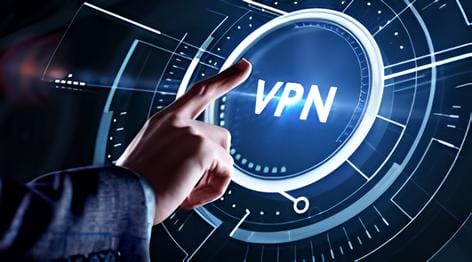Does A VPN Slow Down the Internet?
It is true that utilizing a VPN will cause your connection to lag. Our analysis indicates that there would be a 77% decrease in Wi-Fi speeds after you enter into a VPN.

Knowing the workings of VPNs can help you find the solution. VPNs encrypt data using encryption techniques to guarantee its confidentiality while it is being sent. Although encryption increases security, it also adds a level of complexity that may slow down data flow. However, you may continue to have dependable Wi-Fi speeds if you purchase a premium subscription-based VPN. Maintaining an updated router in a central area of your house can also help you maintain uninterrupted internet service.
Written by Sherry
Contact us via matia4441298@gmail.com
Which VPN offers the fastest internet speed?
Critics and experts often rank NordVPN, ExpressVPN, and Surfshark as the fastest VPNs.
Click to get it!👉👉



They are also frequently regarded as the best VPNs for privacy and other features. With enough servers and effective, modern encryption algorithms, none of the three is expected to cause significant network congestion when you log in.
Examining the Impact of VPNs on Internet Speed
The encryption procedure, which is essential to VPN operation, is at the center of the issue. Data is encrypted before it leaves the device and travels the internet when it is sent using a VPN. The cycle of encryption and decryption increases processing overhead, which might cause internet speeds to drop. The amount of this delay is dependent on a number of variables, such as the VPN service provider's quality, the user's device's processing capacity, and the encryption technique used.
Factors Affecting VPN's Effect on the Speed of the Internet
There are a number of variables that affect how much speed is lost while utilizing a VPN. Among them are:
1. Encryption Level: Internet speed is greatly impacted by the VPN's encryption algorithm's strength. Although more secure encryption levels are available, they may cause slower performance as they need more processing power.
2. Server Distance: Latency and, in turn, internet speed can be impacted by the user's and the VPN server's geographical separation. Slower data transmission rates and longer response times may be experienced by users connecting to distant services.
3. Server Load: The VPN server's capacity and active workload are also very important. Users connecting to overloaded servers may see a decrease in speed as a result of the servers' inability to process data requests effectively.
VPN Cybersecurity Considerations
VPN users need to give cybersecurity the same priority as internet speed. Despite the fact that VPNs are meant to provide security and privacy, there might be serious hazards associated with flaws in the infrastructure or software. Data breaches, illegal access, and the possible disclosure of private information are some of these concerns.
To reduce the dangers to cybersecurity that come with using a VPN, users should:
1. Select Reputable Providers: If you're looking for VPN services, go with providers who have a solid reputation for adhering to cybersecurity best practices. Make sure the supplier complies with industry standards and upgrades its software on a regular basis to fix security flaws by doing in-depth research.
2. Turn on Extra Security Features: A lot of VPNs come with extra security features like kill switches, multi-factor authentication, and DNS leak prevention. By turning these features on, you may improve security and reduce possible threats.
3. Update Software Frequently: Make sure your VPN software and applications are up to date with the newest security fixes and improvements by keeping them updated. Frequent updates aid in defending against security exploits and known vulnerabilities.
Conclusion
Despite VPNs providing a lot of advantages in terms of security and privacy, users should think about how they can affect cybersecurity and internet speed. Users may combine online security with fast internet connections by learning what affects VPN performance and putting recommended practices for cybersecurity into practice. Ultimately, optimizing the advantages of VPNs while lowering related hazards requires wise decision-making and responsible usage techniques.